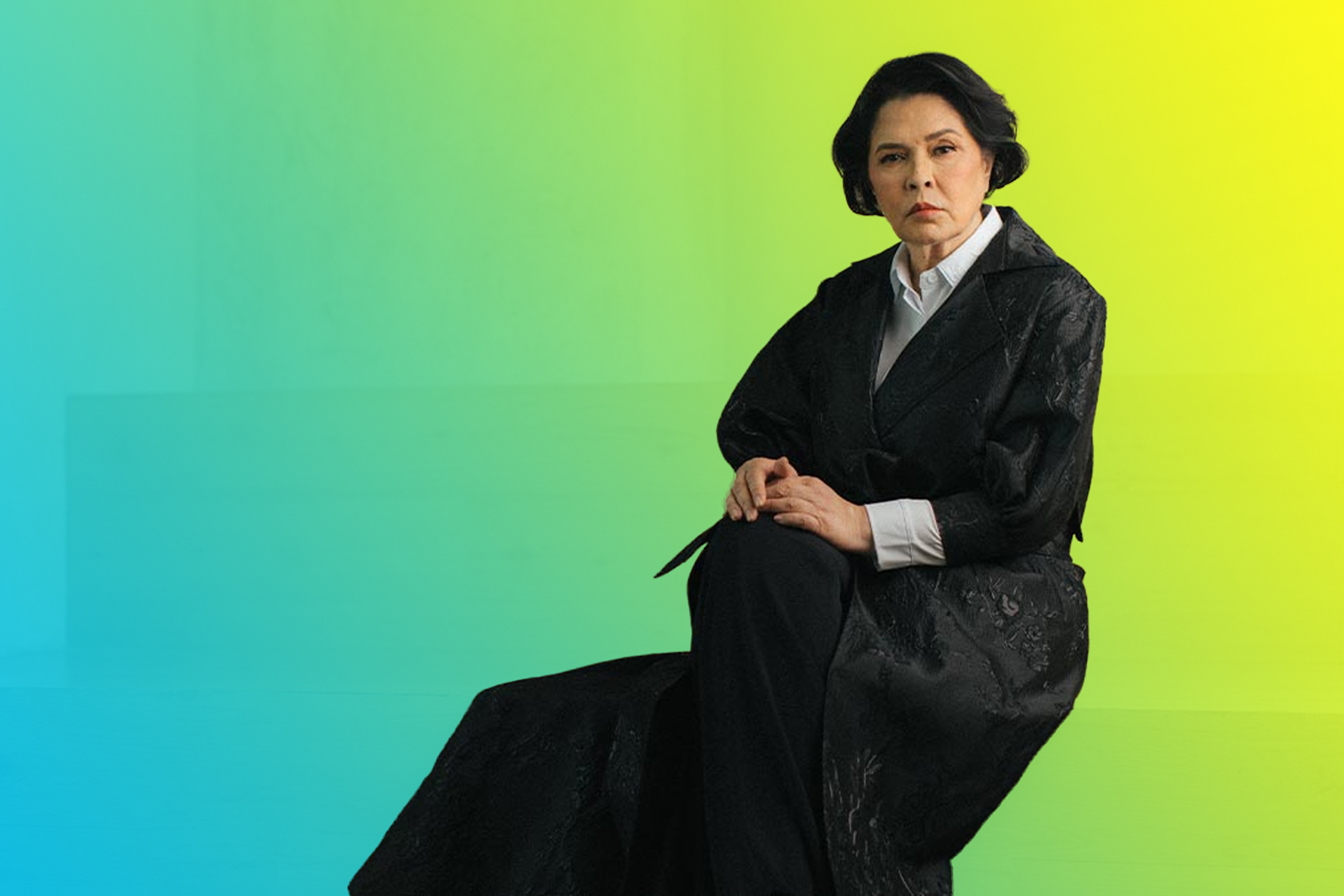Despite the word being thrown around a lot, few actresses in the Philippines deserve to be called “iconic.” There’s one who really needs no introduction, but we’ll try to give her one anyway. She’s so respected and well-known in the industry that she can go by just her first name—Hilda—and everyone would know who we’re talking about.
Even from a slight distance, one can feel a dignified and serious grace emanating from Hilda Koronel. And yet, once you approach and get a chance to speak with her, she is affable and even funny.
“What if I don’t want to answer?” she says with a laugh at the start of the interview when she was told she could answer freely. “Just teasing lang, ha!”
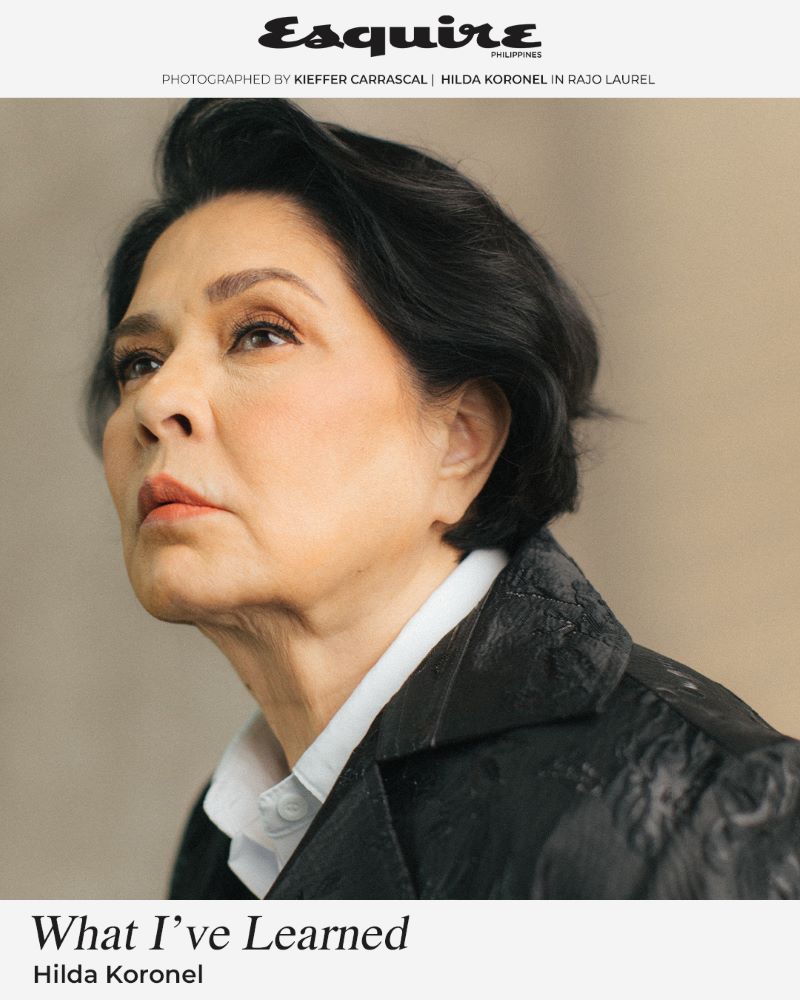
Koronel started acting at a very young age, signing her first contract at the age of 12. “I had no plans of doing it, but somebody saw me sa LVN Studios,” she reminisces. “Tinanong lang ako if I wanted to be an actress. I didn’t even know what that meant because I was very young.” Her mother convinced her to say yes, and, as there was a film being shot at the back at that same time, they did a screen test to see if she was photogenic or not. “And after that, that was it. I signed my contract.”
It was an unexpected moment that led to a long and illustrious career, which includes the eponymous TV series Hilda (which she fondly refers to as The Hilda Show) and several dozen films in the decades that followed. She has witnessed how filmmaking and TV have evolved over the years.
“When I started,” she shares, “I think black and white pa. Nagta-transition kami to color. We used to use films, but now digital na kayo. So, every dekada, nagbabago nang nagbabago. Plus sa mga style ng mga directors, paiba-iba.”
Her filmography is wonderfully diverse and is a fascinating representation of Philippine cinema across generations—from such critically acclaimed masterpieces like Maynila, Sa Mga Kuko ng Liwanag and Insiang (the first Filipino movie to be shown at the Cannes Film Festival) to classic light-hearted fare like Working Girls and Crying Ladies, to memorable films like Gaano Kadalas Ang Minsan? and Tanging Yaman.
Koronel has also received awards from pretty much all the country’s major award-giving bodies, such as FAMAS, the Metro Manila Film Festival, and Gawad Urian. She says the most memorable award she’s received is the first one, for Best Supporting Actress. “I won it when I was 13, sa FAMAS,” she recalls. “I was so young, and I did not expect to win anything of that sort at that age. And wala pang nakakatalo until now kasi wala ako sa ‘child category.’ Nasa ‘adult category’ ako. That was for Santiago. So that was a bit exciting for me.”
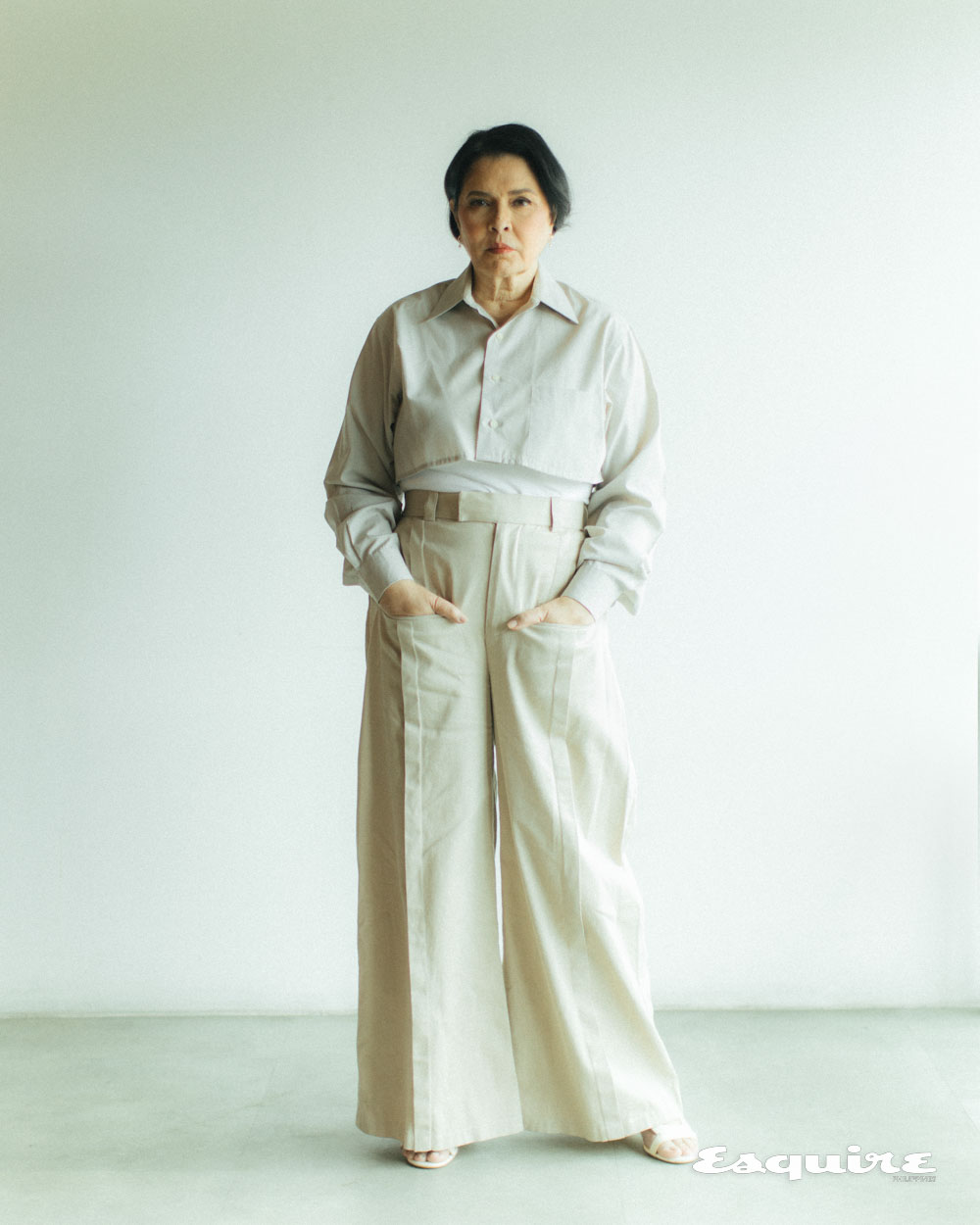
In the early 2010s, Hilda decided to pack her bags and live in the USA. “I felt like I needed a break. At the same time, my husband worked in California, so I needed to be with him rather than be here. Sabi nya, ‘Medyo pagod ka na rin.’ So you know, might as well rest for a while and just do things that you really want to do.”
And so she moved to Los Angeles and lived a relatively quiet life for over a dozen years. “It was just a culture shock for me,” she says. “Wala ‘yung pamilya ko, and then wala akong maids. It was kind of hard, and it was lonely.”
In late 2024, the veteran actress flew back home and accepted a role in her comeback film: the upcoming Sisa, directed by Jun Lana, which is set for release later this year. “I am inviting everybody to watch Sisa kasi it’s a really fascinating role,” she says. “Maganda siya tsaka historical, pero thriller din siya, so naiiba naman din sa usual na ginagawa ko.”
A good education is always good for you. I was graduating from elementary when I started, and they wanted me to stop. But I refused. Ayoko namang maging tanga ako, right? So, I finished high school. After that, they wanted me to stop again because I had a five-year contract na exclusive. I was making five films a year, plus I had my TV show, The Hilda Show. After that, I went to Maryknoll. Ayokong huminto talaga. Education helped me gain an understanding of a lot of things. Especially literature. I was taking up International Studies, which is foreign service. So medyo iba dun sa aking industriya… marami akong natutunan sa pagbabasa ng libro, anong mga libro ang kailangan mong basahin.
For three weeks, I did not sleep para maka-graduate lang ako. Napakahirap, especially ang shooting ko. For example, I was shooting in Quezon for one of our films. Buong umaga up to one o’clock, I’m in school. Naka-rollers ako and everything. And then after leaving school, tuloy na ako ng Quezon province. Kapag magdamag ako sa Quezon province, balik din ako ng Manila. It was kind of hard.
I learned early on that I wasn’t that diplomatic. (Laughs) So, okay lang *that I pursued acting instead of Foreign Service).
Koronel in Antonina
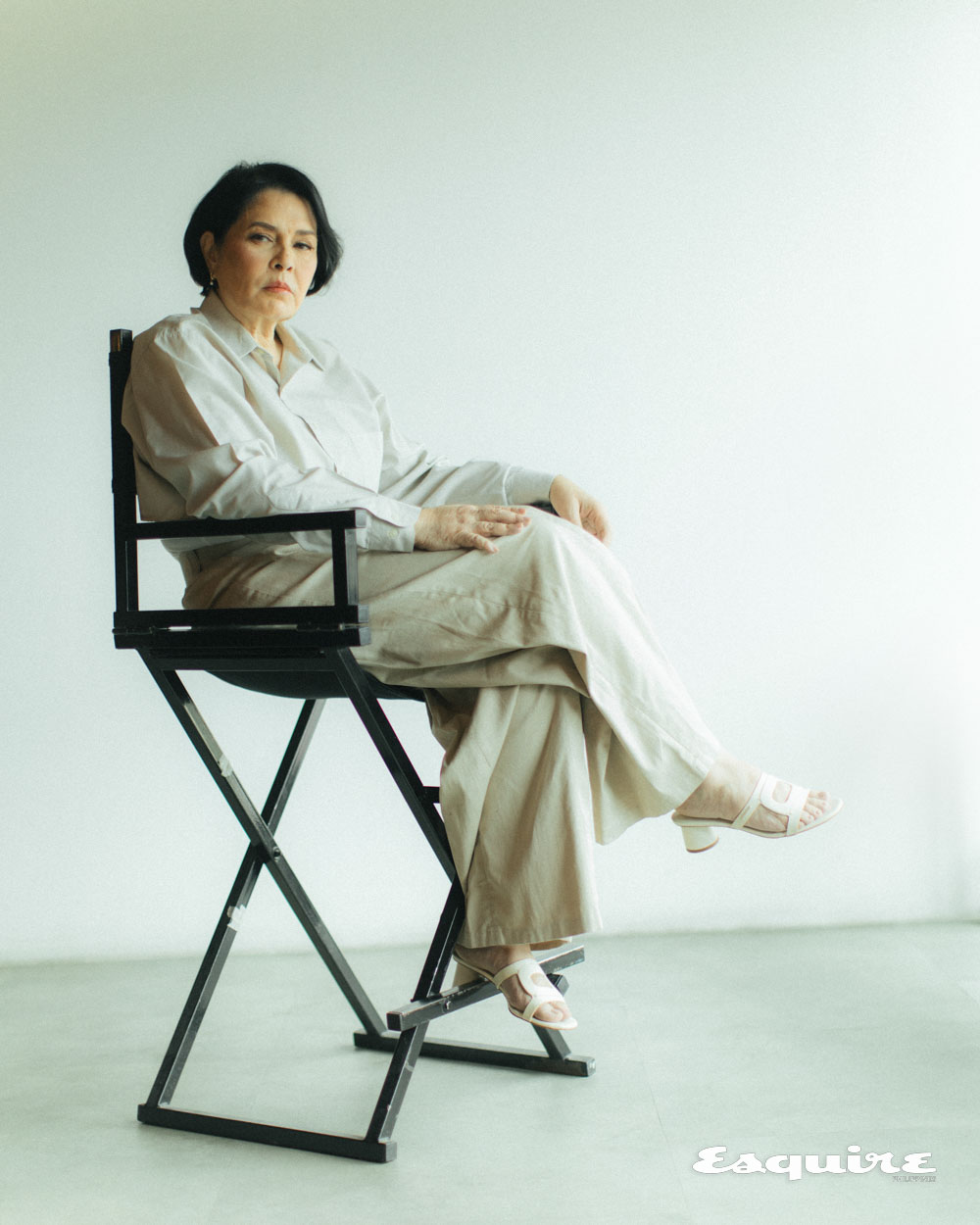
I learned a lot from (director) Lino (Brocka) because I grew up with him, in a sense. Marami akong natutunang techniques. Hindi naman ako nakapag-aral ng acting. Walang workshops noong araw, walang lessons. We learned as we went along. And I had him not just (for film); I had him for five and a half years sa television.
I needed to be a professional. (That was) one of the things I learned from Lino. Learn to come on time, be punctual, mauna ka doon, and treat everybody with respect no matter kung anong trabaho nila. And know your lines. When you get there, you’re supposed to know kung anong script mo, anong character mo. Just be ready when you get there.
I would choose Insiang, if I had to choose just one film that defines my career. That was made specifically for me. Actually, we did Insiang for The Hilda Show before we did it on the big screen. Some parts of Insiang are parts of my life. (And then there is the movie) Hello, Soldier, for that matter, with Anita Linda. Yung mga parts kasi na yun kinukuha ni Lino because he knew me very well. He knew everything about me.
Koronel in Davila gown by Rajo
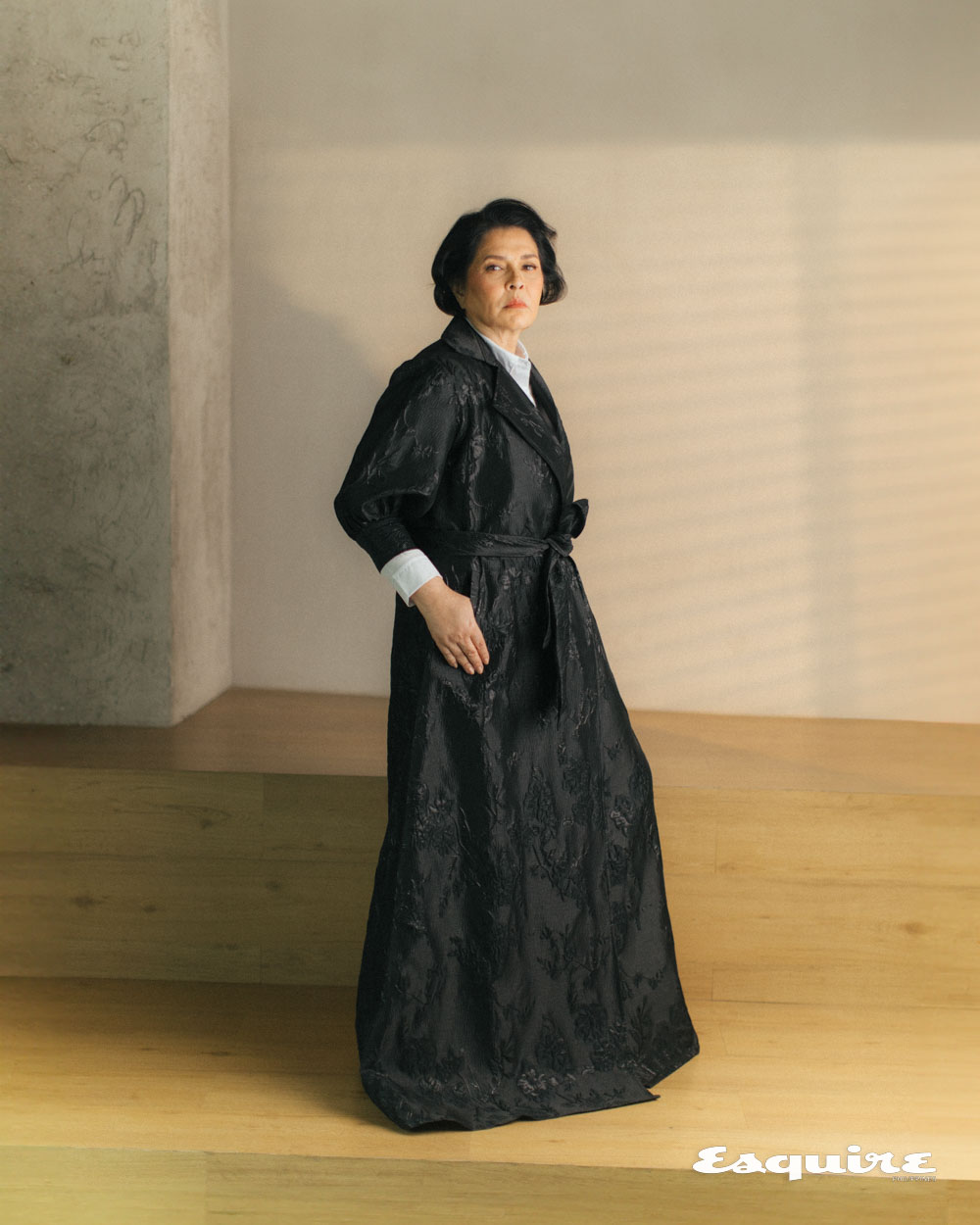
We apply emotionally what we have. ‘Yun ang turo din sa akin ni Lino. Sabi niya yung, sama ng loob mo, dalhin mo rito. So, parang catharsis na rin para sa akin. Iyung mga sama ng loob ko, ‘yung mga iniiyak ko, sinasama ko yun emotionally. Kung may mga eksena akong kamukha nang na-experience ko, pumapasok din yun. But syempre, we have a character that we develop. That’s separate from what we are and who we are.
I’m my worst critic. (Laughs) I always say that. No, I don’t watch (my own films).
Pag take one ka, perfect, you’re superb! In the old days kasi film ang ginagamit. E ngayon, digital na. So kahit 11 takes ‘yun, kahit pagod na pagod ka na, pwede mo ulit-ulitin. So hindi ka nag-aaksaya ng pelikula. Sanay na ako sa television na dire-diretso. The stage is also the same. Tuloy-tuloy ka.
I like the old ways. I like some of the new ways, too. Pero siyempre, laki ako dun sa era na ‘yun. So, medyo nasanay ako dun. But siyempre, hindi naman ako naninibago masyado.
Manila will always be my home. (When I was living abroad), I had TFC (The Filipino Channel) at the beginning, and while I was watching, iyak ako nang iyak the first three years kasi na-miss ko ang Manila because. Syempre I grew up here. Pinanganak ako rito so nakaka-miss lang. When I came back last December, I really missed the lights; ‘yung mga ilaw sa mall. Yung mga taong nagkakagulo. Kasi iba na sa US ngayon eh. Medyo patay na yung mga mall because of online shopping. Hindi katulad dito, I went to the malls, buhay na buhay!
Of course, we go to see a film because we want to escape. We have two hours of escaping life. But aside from that, aside from enjoying the film, I want it to be able to make people think and to come with me and journey with me when I’m doing this film. Sumama sila sa akin.
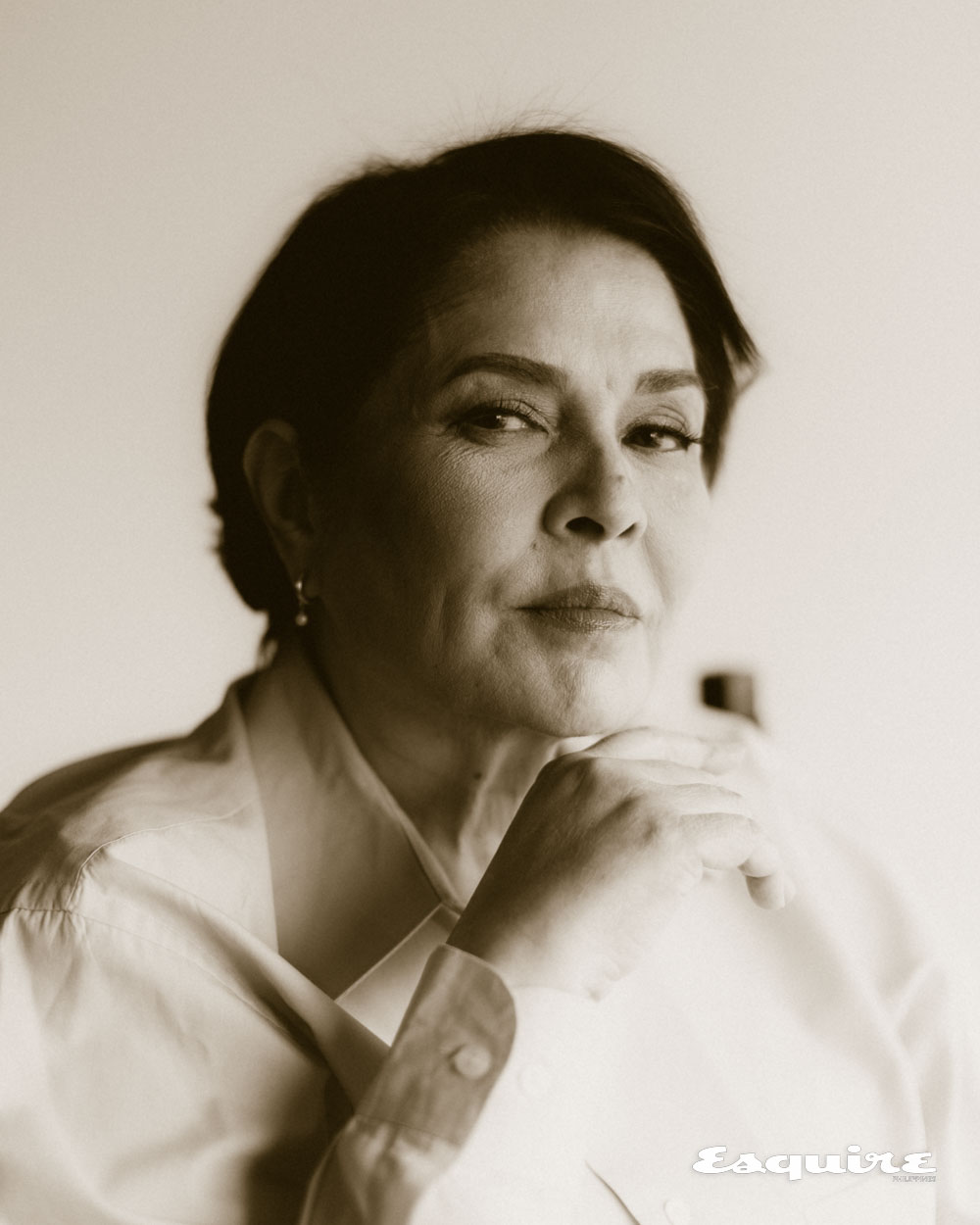
I love Working Girls! During that time, hindi pa uso ‘yung babaeng executive, and we tackled that topic. We were ahead of our time. May feminist (movement na around the world), of course, pero sa atin hindi pa masyadong tinatackle yung issue na ‘yan. Kaya pag women’s day, sa mga eskwelahan, like sa UP for example, they invite us para ipapalabas nila yun. It was a fun movie to do.
In the ’70s, I was too young to really think about (whether my films will have a lasting cultural impact). (But now, I understand) definitely they are still relevant. That’s why they’re long-lasting. And I’m hoping for our movie (Sisa) na maging ganun din, maging relevant even after a couple of decades. And I hope that it will inspire by the same token; that it should be thought-provoking.
The title of my memoir? I don’t know, it’s going to be messy. (Laughs) I don’t know anong title. I guess it would just be Hilda, right? Or Miss H, or something like that.
Originally published on Esquire Magazine PH.

